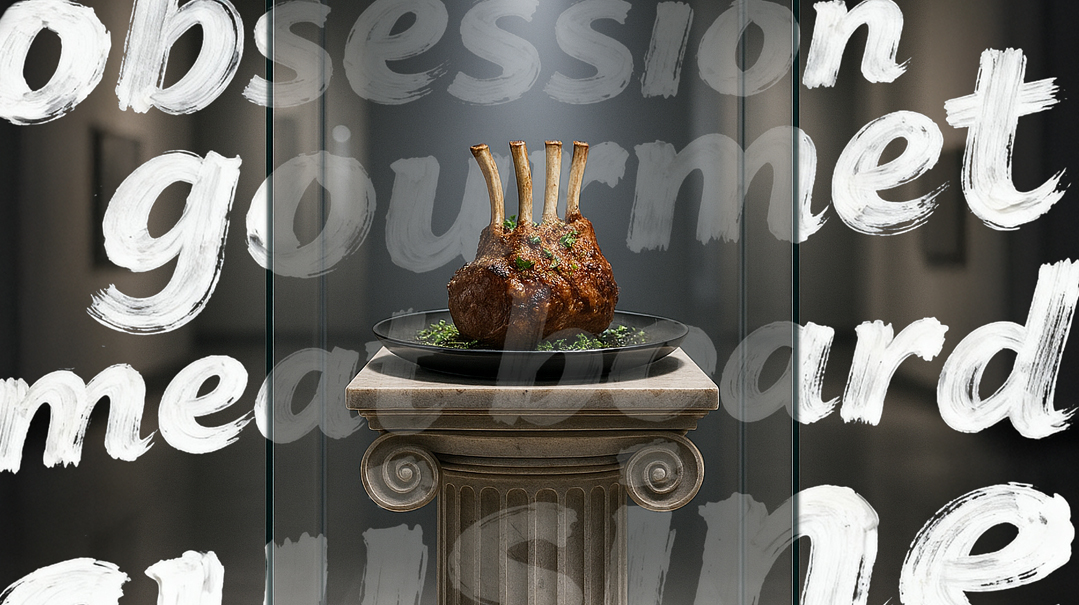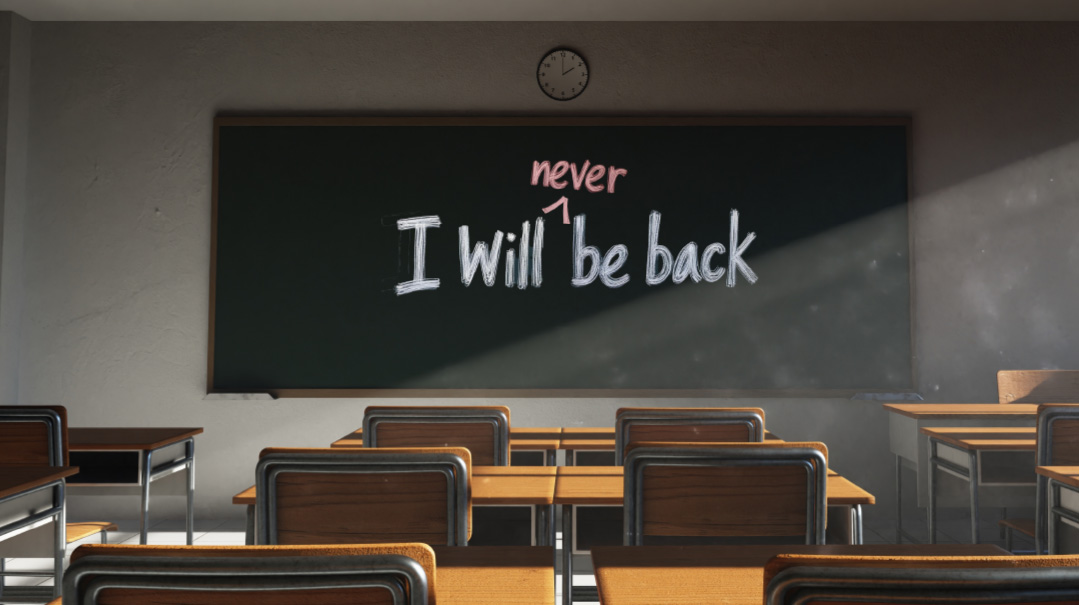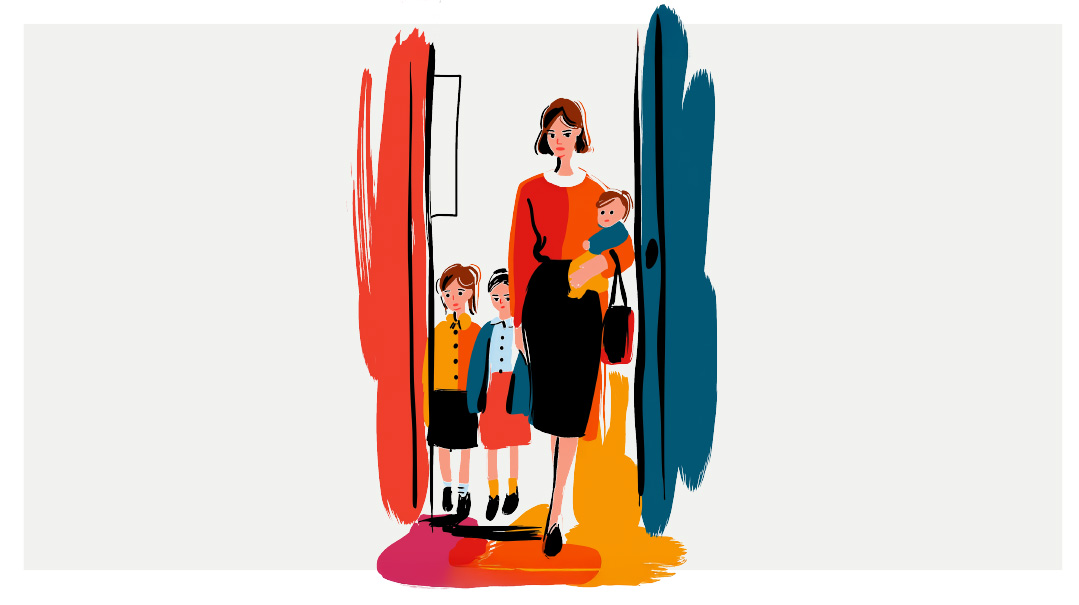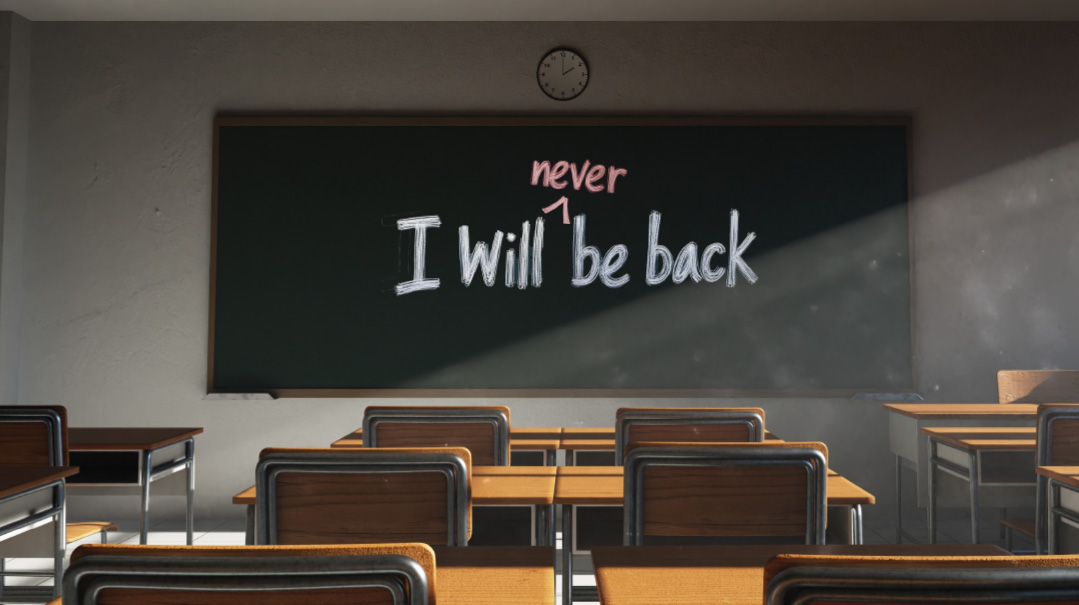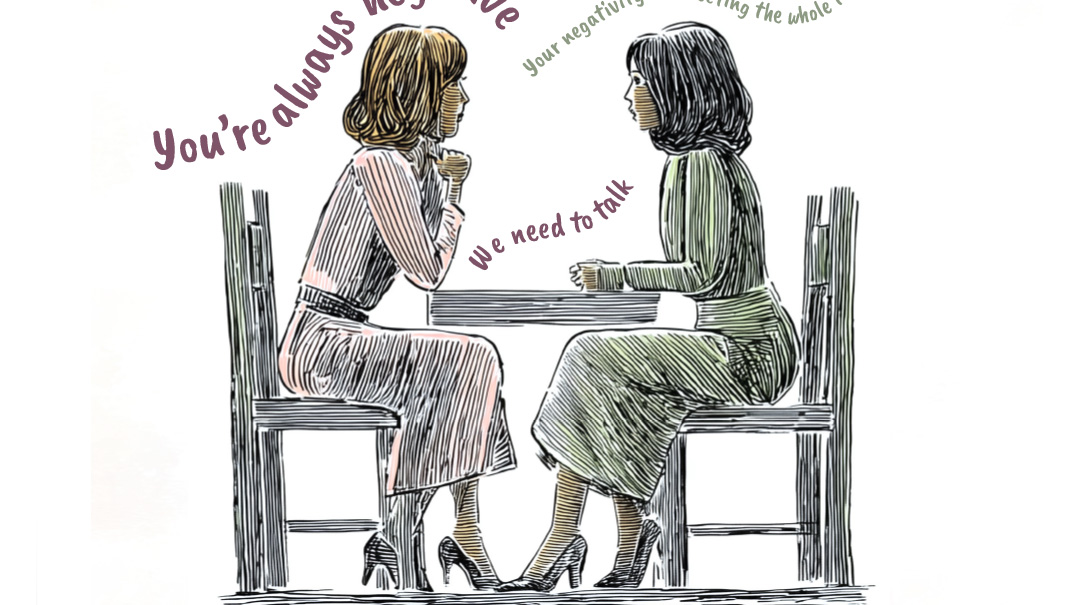Of Divorcées, Widows, and Orphans
| April 3, 2023For some reason, Klal Yisrael’s hearts and pocketbooks just don’t open in the same way when it comes to families of divorce

You know me, your neighbor who lives up the block?
I drive a Honda Odyssey like any other mother, run errands and carpool like it’s going out of style, and take deep breaths when my kids complain about the supper I just prepared. Again.
I’m also divorced.
As a single mother for quite some time, the anguish of living without a spouse and raising my kids alone is generally a small, quiet fire, conveniently located on the back burner of life’s pressing needs. I go to work. I drive to appointments. I take care of a sick child. I prepare for Shabbos, clean up from Shabbos. On a typical day, the expectations and rigors of my life don’t allow the pain to get in the way.
And it doesn’t. Almost.
But then there are other times, times when the tears burst forth, reminding me of the pain inside that burns deep and strong. Other times means Yom Tov, means family simchahs. These are times that while I may go through the motions like everyone else, I couldn’t feel more different. The loneliness pushes forward, drumming a violent tattoo on my fragile, hurting heart. During these times, the divorce can feel as raw and fresh as though it occurred today.
Something I heard long ago comes to mind — that there’s an invisible line of connection between married couples, even between those with a stilted relationship. The baby rolled off his bed? I’ll tell my husband later. The heating bill was extra high this month? We’ll kvetch about it over dinner. The report at the parent-teacher conference was disappointing? We’ll have to figure out how to help our feisty adolescent succeed in a different way. No matter what happens, there’s a connection between them that gives some level of support to get through the daily challenges.
When people say, “I was a single mom this week when my husband went away for business,” or that they’re unavailable because they need to spend time with their spouse, the usually quiet pain rushes forward, loud and hot and heavy.
The Ramban (Shemos 22:20) says that the reason for the obligation to take care of the yasom and almanah is because if they’re ever hurt by someone else, they’re likely to think, “If I had a father/husband to defend me, this wouldn’t have happened.” My rav has told me that this applies to divorce as well.
And this brings me to tell you, dear neighbor, about the biggest pain point of all. There are countless organizations and tzedakah drives that raise money for widows and orphans. There are services and resources so that when a widow needs to build a sukkah, an orphaned boy is becoming bar mitzvah, or a teenage girl needs to learn how to drive, their needs are taken care of, even anticipated.
When was the last time you saw a crowdfunding campaign for divorcées? For some reason, Klal Yisrael’s hearts and pocketbooks just don’t open in the same way when it comes to families of divorce. Quite the opposite. We divorcées have to push and beg and hire (with money we don’t have) and advocate in order to get the same needs met for ourselves and our bereft children. Particularly in out-of-town communities, the resources for divorced women are few and far-between.
Where are you, Klal Yisrael?
An (Un)Married Widow
The Steipler says that a woman’s desire in life is for a husband to love her, and if he doesn’t, she’s considered an almanah with a husband who is alive.
So, you know your divorced neighbor? The one who always has a smile on her face while carrying her heavy burden? In all likelihood, she’s been a “widow” for years, even before her divorce became public.
My little daughter Tova has a classmate who unfortunately recently lost her father. As the school was providing support for the children to sensitively welcome their friend back after shivah, they had a frank conversation with them about how Shira’s life would now be different: no father to lead the Shabbos table, no father to tuck her in at night anymore, etc. Tova sat there throughout, shell-shocked.
The irony of all the attention centered around her classmate, while she lives with so many similar pieces of that reality, wasn’t lost on her. Upon her return home, Tova said to me, with tears running down her beautiful face, “But Ima, Shira had her abba for seven years. My abba left me before I was even born!”
In divorced homes, the children are the biggest korbanos of all. When a father is unhealthy or unstable and can’t forge a healthy connection with his child (even before the divorce), a child wonders about his lovability.
When I was trying to teach my beis medrash bochur how to drive, I was completely stuck. Of course, in theory I could have done it, but physically and logistically it just wasn’t happening. I would come home exhausted after a full day of work. I was about to hire someone, with money I didn’t have, but instead advocated for myself and my child and someone agreed to do it for free.
But first, the need to advocate. To ask. To beg. To be ready to pay, until something came through.
I always worry about my son’s development, whether his mentors are the appropriate father figures for him. When he was younger, getting someone to learn with him on a regular basis on a Motzaei Shabbos took years of asking, begging, offering payment I didn’t have. He often just learned alone, and his pain at sharing the experience with me mingled with mine. I would think, Didn’t any other man or boy in the shul notice my brave little boy, sitting all by himself? Do I have to ask and be vulnerable about everything? And — dare I say it — would anyone let this continue to happen, week after week, if my son were an orphan?
I wonder if somehow, due to our constant efforts to meet the same societal expectations as everyone else, even well-meaning family members and friends forget how hard it is to be a divorcée. They don’t understand, say insensitive things, or even think they are allowed to judge a woman for her decision to divorce. But when a couple divorces, there’s usually no choice. It’s almost always the case that this was the option that would create a better reality for her and her children, that there was serious dysfunction being perpetuated behind closed doors.
I wouldn’t wish my life on anyone. No one should ever have to experience how overwhelmed single mothers feel, raising kids alone, every minute of every day, without an invisible line of connection to another, without someone carrying the burden along with them. It’s not so hard to do anything in particular; it’s just hard to do everything.
Now that I’ve shared the deepest recesses of my pain, you may think of me as a kvetch, as a negative and bitter person. But you couldn’t be more wrong. My many friends will tell you that I love to laugh, I’m an expert in my field, and I’m constantly working on my emunah and parenting skills. I’m also told that I’m authentic, refreshing, and articulate. (I’d like to think so, if you’ve made it this far through my article!)
How You Can Help
I would like to challenge you, compassionate women of Klal Yisrael.
Can you draw upon the love and caring that I’m confident beats in every one of your hearts? Can you each take a moment to wonder about one single mother and her family that you know, and think: How can I make her life better? How can I take one of the balls she’s trying to keep in the air and relieve her of a bit of her burden?
And — perhaps this mindset shift is the most challenging of all — would I say/think/feel how I do if she were a widow?
Here are some suggestions of how we can do better toward divorcées:
Accept her. As much as you think you know, you’ll never know completely what happened between her and her ex-husband, and the last thing a divorcée needs is judgment. Unconditional acceptance is key. Even if you don’t agree with any of her decisions, her pain is real. Once she no longer has a spouse, as a family member or friend, you become the family she needs to rely on.
Be there. Show up. Show you care. Be extra sensitive at triggering times, like Yom Tov or at a simchah. A short text or small gift can go a very long way. Don’t just say, “Let me know if you need a meal,” but set up a recurring monthly Shabbos invite. Asking every time can be so hard, and it’s often easier to just stay home.
Check in, consistently. Just because a woman has been divorced for a long time doesn’t mean her struggles have dissipated. If anything, the opposite is true! Children grow up, their needs increase. Set up an alarm or reminder on your phone if you need to, but don’t forget about her!
Be open. If you don’t know how to help, ask her! Everyone is different, and things that are helpful to one may be hurtful to the next. But if you don’t ask, you’ll never know. (Obviously, this has to be done in a very sensitively and tactfully. If you aren’t close, approach a close relative or friend or her family rav.)
There’s so much chesed in Klal Yisrael. Women are always thinking of one another, of how to make other peoples’ lives easier. We’re natural givers. I know you’re all up to this challenge. And if I’ve succeeded in helping even one single mother be more accepted and supported in her community, my vulnerability and soul-baring has had purpose.
(Originally featured in Family First, Issue 838)
Oops! We could not locate your form.


